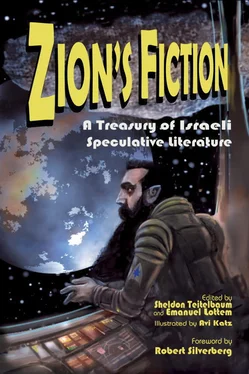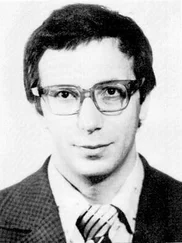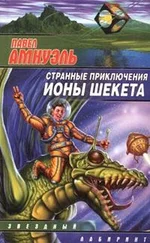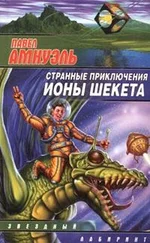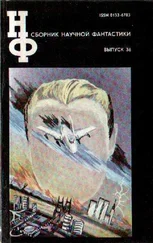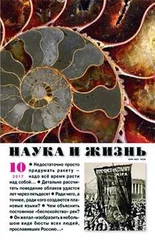He could still remember it. Of course he could. A day so long ago, that Boris Aaron Chong himself was not yet an idea, an I-loop that hadn’t yet been formed….It was in Jaffa, in the Old City on top of the hill, above the harbor. The home of the Others.
Zhong Weiwei cycled up the hill, sweating in the heat. He mistrusted these narrow, winding streets, both of the Old City itself and of Ajami, the neighborhood that had at last reclaimed its heritage. Weiwei understood this place’s conflicts very well. There were Arabs and Jews, and they wanted the same land and so they fought. Weiwei understood land and how you were willing to die for it.
But he also knew the concept of land had changed—that land was a concept less of a physicality now, and more of the mind. Recently he had invested some of his money in an entire planetary system in the Guilds of Ashkelon games-universe. Soon he would have children—Yulia was in her third trimester already—and then grandchildren and great-grandchildren and so on down the generations, and they would remember Weiwei, their progenitor. They would thank him for what he’d done, for the real estate both real and virtual, and for what he was hoping to achieve today.
He, Zhong Weiwei, would begin a dynasty here in this divided land. For he had understood the most basic of aspects, he alone saw the relevance of that foreign enclave that was Central Station. Jews to the north (and his children, too, would be Jewish, which was a strange and unsettling thought), Arabs to the south, now they have returned, reclaimed Ajami and Menashiya, and were building New Jaffa, a city towering into the sky in steel and stone and glass. Divided cities, like Akko, and Haifa, in the north, and the new cities sprouting in the desert, in the Negev and the Arava.
Arab or Jew, they needed their immigrants, their foreign workers, their Thai and Filipino and Chinese, Somali and Nigerian. And they needed their buffer, that in-between zone that was Central Station, old South Tel Aviv, a poor place, a vibrant place—most of all, a liminal place.
And he would make it his home. His, and his children’s, and his children’s children’s. The Jews and the Arabs understood family, at least. In that they were like the Chinese—so different from the Anglos with their nuclear families, strained relations, all living separately, alone…. This, Weiwei swore, would not happen to his children.
At the top of the hill he stopped and wiped his brow from the sweat with the cloth handkerchief he kept for that purpose. Cars went past him, and the sound of construction was everywhere. He himself worked on one of the buildings they were erecting here, a diasporic construction crew, small Vietnamese and tall Nigerians and pale, solid Transylvanians, communicating by hand signals and Asteroid Pidgin (though that had not yet been in widespread use at that time) and automatic translators through their nodes. Weiwei himself worked the exoskeleton suits, climbing up the tower blocks with spiderlike grips, watching the city far down below and looking out to sea and distant ships….
But today was his day off. He had saved money—some to send, every month, to his family back in Chengdu, some for his soon to be growing family here. And the rest for this for the favor to be asked of the Others.
Folding the handkerchief neatly away, he pushed the bike along the road and into the maze of alleyways that was the Old City of Jaffa. The remains of an ancient Egyptian fort could still be seen there; the gate had been refashioned a century before, and the hanging orange tree still hung by chains, planted within a heavy, egg-shaped stone basket in the shade of the walls. Weiwei didn’t stop but kept going until he reached, at last, the place of the Oracle.
Boris looked at the rising sun. He felt tired, drained. He had kept his father company throughout the night. His father, Vlad, hardly slept anymore. He sat for hours in his armchair, a thing worn and full of holes, dragged one day, years ago (the memory crystal-clear in Boris’s mind) with great effort and pride from Jaffa’s flea market. Vlad’s hands moved through the air, moving and rearranging invisible objects. He would not give Boris access into his visual feed. He barely communicated anymore. Boris suspected the objects were memories, that Vlad was trying somehow to fit them back together again. But he couldn’t tell for sure.
Like Weiwei, Vlad had been a construction worker. He had been one of the people who had built Central Station, climbing up the unfinished gigantic structure, this spaceport that was now an entity unto itself, a miniature mall-nation to which neither Tel Aviv nor Jaffa could lay complete claim.
But that had been long ago. Humans lived longer now, but the mind grew old just the same, and Vlad’s mind was older than his body. Boris, on the roof, went to the corner by the door. It was shaded by a miniature palm tree, and now the solar panels, too, were opening out, extending delicate wings, the better to catch the rising sun and provide shade and shelter to the plants.
Long ago the resident association had installed a communal table and a samovar there, and each week a different flat took turns to supply the tea and the coffee and the sugar. Boris gently plucked leaves off the potted mint plant nearby and made himself a cup of tea. The sound of boiling water pouring into the mug was soothing, and the smell of the mint spread in the air, fresh and clean, waking him up. He waited as the mint brewed, took the mug with him back to the edge of the roof. Looking down, Central Station—never truly asleep—was noisily waking up.
He sipped his tea and thought of the Oracle.
The Oracle’s name had once been Cohen, and rumor had it that she was a relation of Saint Cohen of the Others, though no one could tell for certain. Few people today knew this. For three generations she had resided in the Old City, in that dark and quiet stone house, she and her Other alone.
The Other’s name, or ident tag, was not known, which was not unusual with Others.
Regardless of possible familial links, outside the stone house there stood a small shrine to Saint Cohen. It was a modest thing, with random items of golden color placed on it, and old, broken circuits and the like, and candles burning at all hours. Weiwei, when he came to the door, paused for a moment before the shrine and lit a candle and placed an offering—a defunct computer chip from the old days, purchased at great expense in the flea market down the hill.
Help me achieve my goal today, he thought, help me unify my family and let them share my mind when I am gone.
There was no wind in the Old City, but the old stone walls radiated a comforting coolness. Weiwei, who had only recently had a node installed, pinged the door, and a moment later it opened. He went inside.
Boris remembered that moment as a stillness and at the same time, paradoxically, as a shifting, a sudden inexplicable change of perspective. His grandfather’s memory glinted in the mind. For all his posturing, Weiwei was like an explorer in an unknown land, feeling his way by touch and instinct. He had not grown up with a node; he found it difficult to follow the Conversation, that endless chatter of human and machine feeds a modern human would feel deaf and blind without, yet he was a man who could sense the future as instinctively as a chrysalis can sense adulthood. He knew his children would be different, and their children different in their turn, but he equally knew there can be no future without a past—
“Zhong Weiwei,” the Oracle said. Weiwei bowed. The Oracle was surprisingly young, or young-looking, at any rate. She had short black hair and unremarkable features and pale skin and a golden prosthetic for a thumb, which made Weiwei shiver without warning: it was her Other.
Читать дальше
